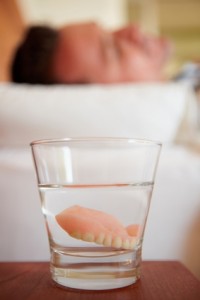Over the last few years there has been an increase or reported cases of MRSA infections. Many of my patients ask me about the risk of oral MRSA infections and how it can effect them. Our mouths are home to over 300 different types of bacteria.  In a healthy mouth, these bacteria work together to create a healthy oral environment. But, as in any other system, if things go awry and the balance becomes upset then we find different types of bacteria take advantage of this and begin to thrive.
In a healthy mouth, these bacteria work together to create a healthy oral environment. But, as in any other system, if things go awry and the balance becomes upset then we find different types of bacteria take advantage of this and begin to thrive.
So does the average person have MRSA in their mouth?
Studies have shown that the population that has the highest incidence of MRSA colonization are elderly patients in nursing homes as well as patients with advanced malignant diseases suffering from reduced salivary flow rate.
What can they do to reduce the amount of bad bacteria in our mouths?
MRSA tends to like to grow on the porous surfaces of dentures as well as being found in plaque in the mouth. Some studies have shown that a good way to clean MRSA infected dentures is with a chlorhexidine oral rinse as well as soaking the dentures in chlorhexidine for 10 minutes once a week. Dentures should be cleaned daily with a stiff brush and soap and water, not toothpaste. And even, if you wear dentures you should be cleaning your gums and remaining teeth as well. Some studies also suggest microwaving your dentures for 3 minutes. However, I don’t suggest this if you have any portion of your denture that is metal.
What kind of risks are there if you have MRSA in your mouth?
There are no studies that offer clear associations of MRSA colonization in the mouth causing systemic and dental problems. Although, the bacteria having been found in some orofacial abscesses as well as some infections located on the gingiva and corners of the mouth commonly associated with denture wear. So although there have been few instances of this type of bacteria found in oral infections the concern is for the potential for these strains to re-colonize at other body sites or become a source of cross-infection to other patients or hospital/nursing home staff.
The ecology of Staphylococcus species in the oral cavity; A. J. Smith, M. S. Jackson and J. Bagg Staphylococcus aureus in the oral cavity: a three-year retrospective analysis of clinical laboratory data; A.J. Smith, D. Robertson, M. K. Tang, M. S. Jackson, D. MacKenzie & J. Bagg MRSA infection; K. Valand & P.M. McLoughlin
]]>
 In a healthy mouth, these bacteria work together to create a healthy oral environment. But, as in any other system, if things go awry and the balance becomes upset then we find different types of bacteria take advantage of this and begin to thrive.
In a healthy mouth, these bacteria work together to create a healthy oral environment. But, as in any other system, if things go awry and the balance becomes upset then we find different types of bacteria take advantage of this and begin to thrive.

Leave a Reply
Want to join the discussion?Feel free to contribute!